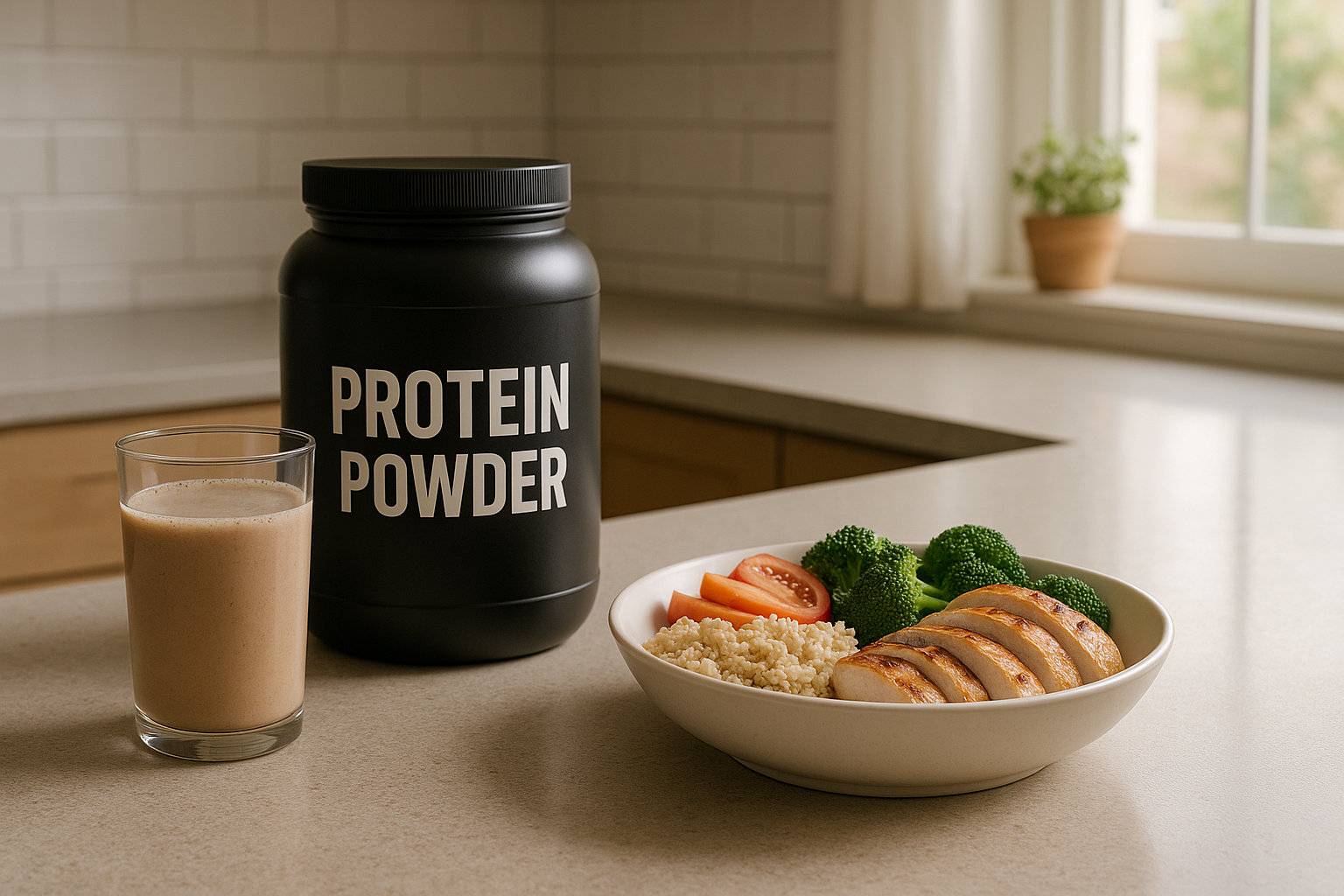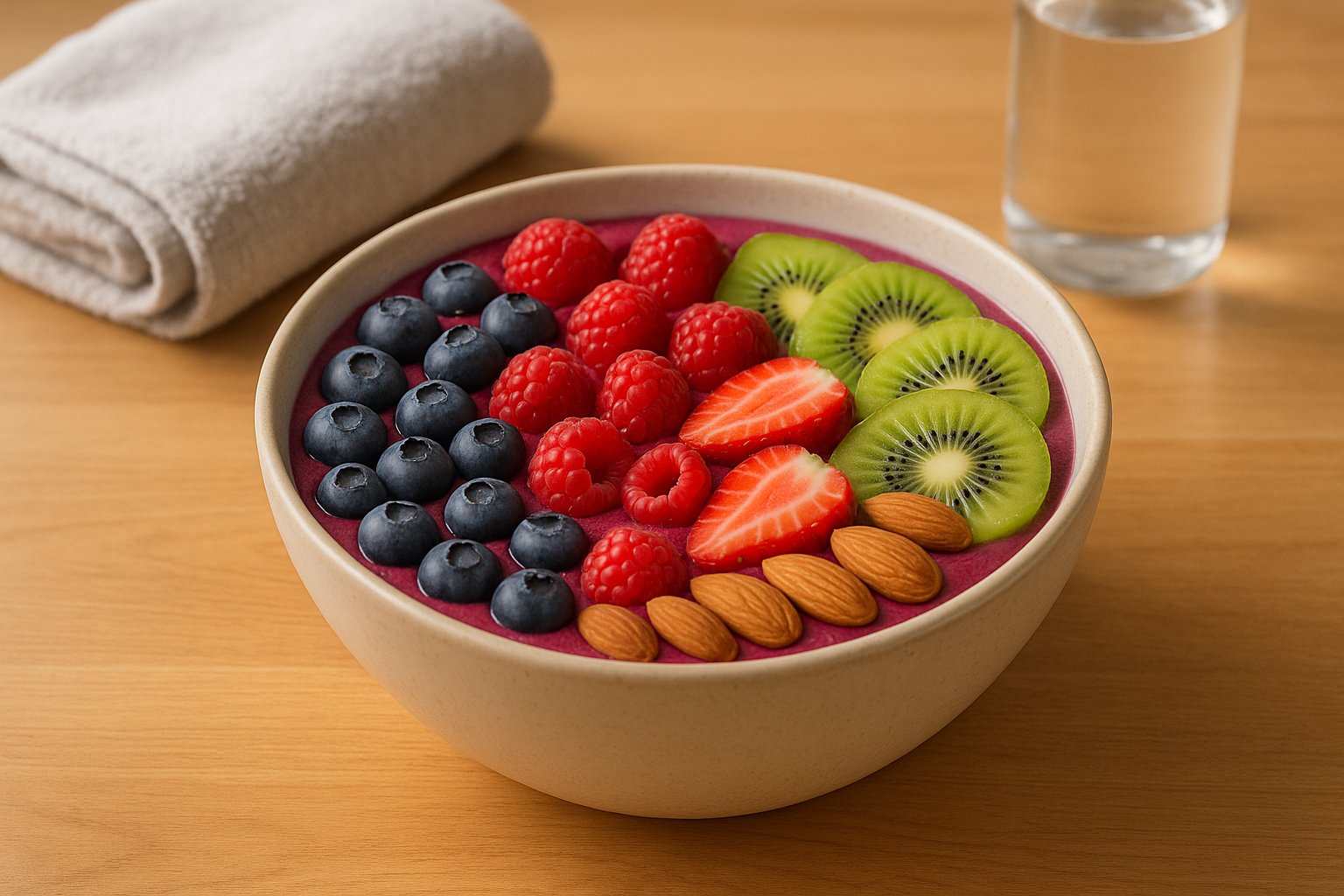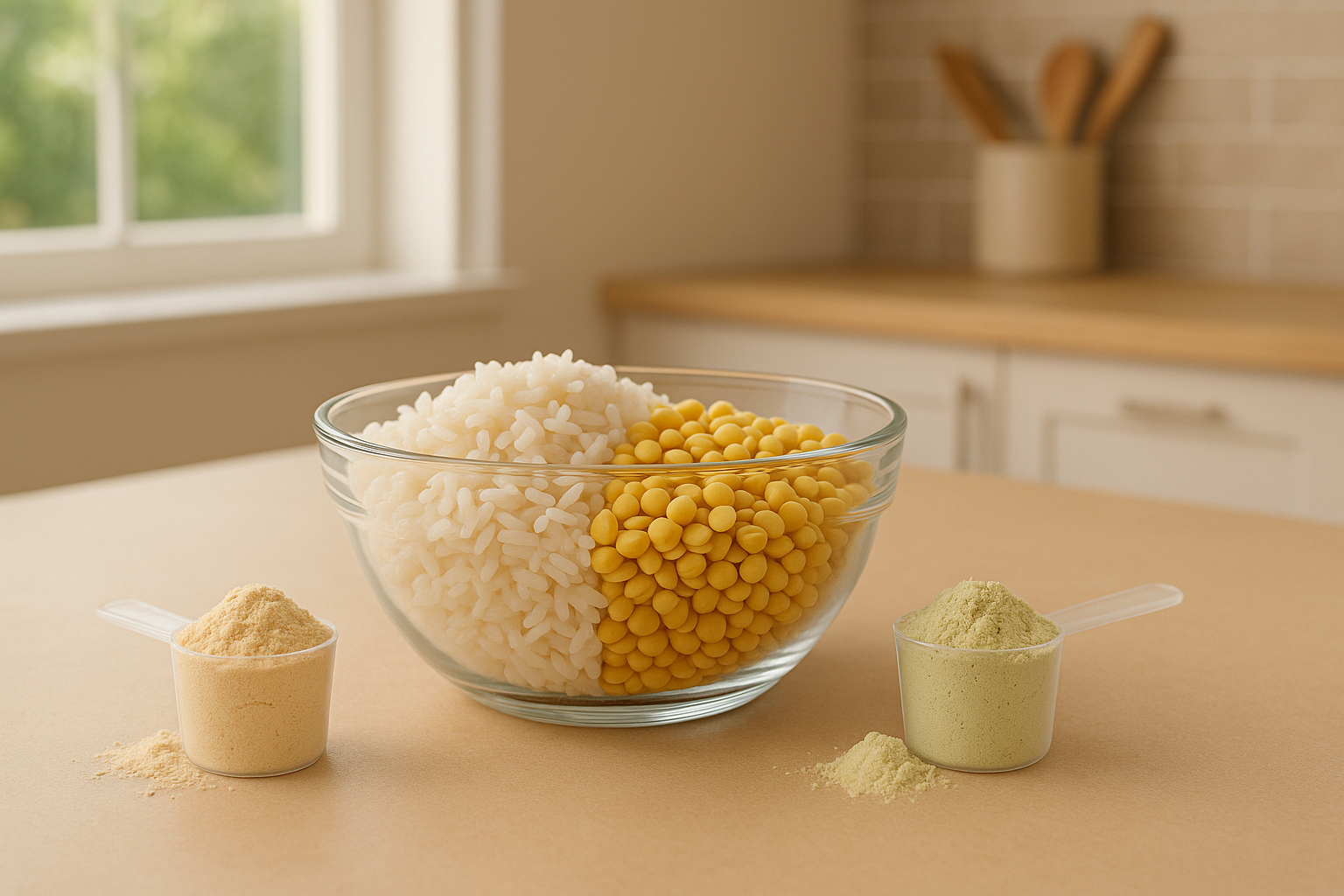
Are Carbs Really the Enemy?
This is truly a very tricky and loaded question. If you cut carbs, will you lose weight? Yes. If you do not cut carbs and simply manage them better, will you lose weight? Yes. You’re probably ready to smash your device at this point after just reading that answer.
I wish it were easier to just say the only way to lose weight is to cut carbs but that isn’t the case. It truly comes down to what carbohydrates you’re actually putting in your body. Starchy carbs and simple carbohydrates that are consumed in excess can cause you to not only crush your weight loss hopes and dream, but they can actually cause you to gain weight in the process. Does that mean consuming complex carbohydrates is a better option and will allow you to lose weight? Not necessarily. Now, you’re probably definitely ready to smash your device.
 Listen, anything consumed in excess is going to cause you to gain weight. It doesn’t matter if it’s protein, fats, carbs, etc. That’s the nature of the beast when it comes to calories. If you consume them in excess and put yourself in a surplus, you gain weight. If you manage them and are in a caloric deficit, you can lose weight.
Listen, anything consumed in excess is going to cause you to gain weight. It doesn’t matter if it’s protein, fats, carbs, etc. That’s the nature of the beast when it comes to calories. If you consume them in excess and put yourself in a surplus, you gain weight. If you manage them and are in a caloric deficit, you can lose weight.
What people fail to realize is that carbohydrates, when consumed, are broken down into sugars. You either use those sugars as an energy source or they get stored by the body when not burned off (hence where weight gain comes from).
Research has shown that when looking at overweight and obese individuals, they were able to lose weight and maintain that weight when they cut carbs. The cause of this was due to the fact that when they cut carbs, they consumed fewer overall calories during the day.
In another study, researchers looked at the ratio of carbohydrates consumed in the diet to see if that played a significant role in enhanced weight loss. Participants were given a diet that consisted of 20%, 40%, or 60% carbohydrates while keeping all of their calories the same across all groups. Their findings were that the group who consumed 20% carbohydrates in their diet burned more calories each day – 250 calories to be exact when compared to the other groups.
So, does this research give us a better picture of what can happen when you cut carbs in an effort to lose weight? Yes. It does, indeed, show that when you cut carbs you put yourself in a better position to promote weight loss. The one caveat to this would be the fact that we are lumping all carbohydrates into one category and then labeling it “BAD.”
When you compare the differences between simple carbohydrates and complex, they tend to be on opposite sides of the spectrum. Simple carbohydrates are broken down and absorbed quickly which is why you notice a quick and immediate spike in blood sugar levels. Unfortunately, as quickly as the spike comes, a crash will soon follow and this can cause you to become lethargic and even moody. Simple carbohydrates can be things like donuts, cakes, pies, white bread, pasta, and just about any dessert imaginable. If you think about it, when you consume simple carbohydrate sources, you rarely get full. This is because simple carbohydrates simply do not fill you up as a complex carbohydrate will.
 Complex carbohydrates, on the other hand, are broken down and absorbed more slowly and help prevent the spike in blood sugar commonly associated with simple carbohydrates. When you think of complex carbohydrates, we generally associate it with foods like beans, sweet potatoes, oatmeal, and even whole-grains (pasta and bread). By default, complex carbohydrates should be the carbs you primarily focus on when having them in your daily nutrition. They also provide the body with more of a sustained energy source rather than the roller coaster ride you go on with simple carbohydrates.
Complex carbohydrates, on the other hand, are broken down and absorbed more slowly and help prevent the spike in blood sugar commonly associated with simple carbohydrates. When you think of complex carbohydrates, we generally associate it with foods like beans, sweet potatoes, oatmeal, and even whole-grains (pasta and bread). By default, complex carbohydrates should be the carbs you primarily focus on when having them in your daily nutrition. They also provide the body with more of a sustained energy source rather than the roller coaster ride you go on with simple carbohydrates.
Circling back, if you cut carbs can you lose weight? Yes. But choosing the right source of your carbohydrates such as green leafy vegetables will allow you to consume carbohydrates in volume with minimal calories. Structuring your diet from a carbohydrate standpoint around healthy (non-starchy) vegetables would be your best bet to cut carbs, reduce total caloric intake, put yourself in a deficit, and lose weight.
 Does this mean you need to have your carbohydrates at 20% in order to lose weight? Not necessarily. While it worked in the research, that doesn’t mean it’s an end all be all. You can still lose weight by having a higher overall ratio but you should still manage your carbs and not think that having 60% of your calories coming from a carb source such as broccoli would be beneficial (that actually sounds like it would be a terrible diet anyway).
Does this mean you need to have your carbohydrates at 20% in order to lose weight? Not necessarily. While it worked in the research, that doesn’t mean it’s an end all be all. You can still lose weight by having a higher overall ratio but you should still manage your carbs and not think that having 60% of your calories coming from a carb source such as broccoli would be beneficial (that actually sounds like it would be a terrible diet anyway).
Removing carbohydrates altogether is also a terrible idea. You will have massive cravings, hate your diet, hate your life, and when you fall off the wagon (which you will) you will rebound by consuming just about every poor carbohydrate source you can get your hands on. DON’T DO IT! Manage, don’t eliminate carbs.
Regardless of the “diet plan” you are currently using, focus on managing your carbohydrates, lowing the total amount consumed, and making wiser decisions on the actual carbohydrates you consume and you’ll be able to lose weight. Cut carbs (the bad ones) and you’ll notice your overall carbohydrate intake for the day decreases. Find the right mix of complex carbohydrates that matches your palate while also providing you with sustainable energy all day long. Everyone is different and for that reason, I cannot give you a definitive answer as to which will work in all of your individual situations. You will need to play around with your complex carbohydrate sources to see what works best for you. But in the end, don’t eliminate carbohydrates from your diet. Simply manage them better.
Please like and share your thoughts and comments below!
I wish it were easier to just say the only way to lose weight is to cut carbs but that isn’t the case. It truly comes down to what carbohydrates you’re actually putting in your body. Starchy carbs and simple carbohydrates that are consumed in excess can cause you to not only crush your weight loss hopes and dream, but they can actually cause you to gain weight in the process. Does that mean consuming complex carbohydrates is a better option and will allow you to lose weight? Not necessarily. Now, you’re probably definitely ready to smash your device.
 Listen, anything consumed in excess is going to cause you to gain weight. It doesn’t matter if it’s protein, fats, carbs, etc. That’s the nature of the beast when it comes to calories. If you consume them in excess and put yourself in a surplus, you gain weight. If you manage them and are in a caloric deficit, you can lose weight.
Listen, anything consumed in excess is going to cause you to gain weight. It doesn’t matter if it’s protein, fats, carbs, etc. That’s the nature of the beast when it comes to calories. If you consume them in excess and put yourself in a surplus, you gain weight. If you manage them and are in a caloric deficit, you can lose weight.What people fail to realize is that carbohydrates, when consumed, are broken down into sugars. You either use those sugars as an energy source or they get stored by the body when not burned off (hence where weight gain comes from).
Research has shown that when looking at overweight and obese individuals, they were able to lose weight and maintain that weight when they cut carbs. The cause of this was due to the fact that when they cut carbs, they consumed fewer overall calories during the day.
In another study, researchers looked at the ratio of carbohydrates consumed in the diet to see if that played a significant role in enhanced weight loss. Participants were given a diet that consisted of 20%, 40%, or 60% carbohydrates while keeping all of their calories the same across all groups. Their findings were that the group who consumed 20% carbohydrates in their diet burned more calories each day – 250 calories to be exact when compared to the other groups.
So, does this research give us a better picture of what can happen when you cut carbs in an effort to lose weight? Yes. It does, indeed, show that when you cut carbs you put yourself in a better position to promote weight loss. The one caveat to this would be the fact that we are lumping all carbohydrates into one category and then labeling it “BAD.”
When you compare the differences between simple carbohydrates and complex, they tend to be on opposite sides of the spectrum. Simple carbohydrates are broken down and absorbed quickly which is why you notice a quick and immediate spike in blood sugar levels. Unfortunately, as quickly as the spike comes, a crash will soon follow and this can cause you to become lethargic and even moody. Simple carbohydrates can be things like donuts, cakes, pies, white bread, pasta, and just about any dessert imaginable. If you think about it, when you consume simple carbohydrate sources, you rarely get full. This is because simple carbohydrates simply do not fill you up as a complex carbohydrate will.
 Complex carbohydrates, on the other hand, are broken down and absorbed more slowly and help prevent the spike in blood sugar commonly associated with simple carbohydrates. When you think of complex carbohydrates, we generally associate it with foods like beans, sweet potatoes, oatmeal, and even whole-grains (pasta and bread). By default, complex carbohydrates should be the carbs you primarily focus on when having them in your daily nutrition. They also provide the body with more of a sustained energy source rather than the roller coaster ride you go on with simple carbohydrates.
Complex carbohydrates, on the other hand, are broken down and absorbed more slowly and help prevent the spike in blood sugar commonly associated with simple carbohydrates. When you think of complex carbohydrates, we generally associate it with foods like beans, sweet potatoes, oatmeal, and even whole-grains (pasta and bread). By default, complex carbohydrates should be the carbs you primarily focus on when having them in your daily nutrition. They also provide the body with more of a sustained energy source rather than the roller coaster ride you go on with simple carbohydrates.Circling back, if you cut carbs can you lose weight? Yes. But choosing the right source of your carbohydrates such as green leafy vegetables will allow you to consume carbohydrates in volume with minimal calories. Structuring your diet from a carbohydrate standpoint around healthy (non-starchy) vegetables would be your best bet to cut carbs, reduce total caloric intake, put yourself in a deficit, and lose weight.
 Does this mean you need to have your carbohydrates at 20% in order to lose weight? Not necessarily. While it worked in the research, that doesn’t mean it’s an end all be all. You can still lose weight by having a higher overall ratio but you should still manage your carbs and not think that having 60% of your calories coming from a carb source such as broccoli would be beneficial (that actually sounds like it would be a terrible diet anyway).
Does this mean you need to have your carbohydrates at 20% in order to lose weight? Not necessarily. While it worked in the research, that doesn’t mean it’s an end all be all. You can still lose weight by having a higher overall ratio but you should still manage your carbs and not think that having 60% of your calories coming from a carb source such as broccoli would be beneficial (that actually sounds like it would be a terrible diet anyway). Removing carbohydrates altogether is also a terrible idea. You will have massive cravings, hate your diet, hate your life, and when you fall off the wagon (which you will) you will rebound by consuming just about every poor carbohydrate source you can get your hands on. DON’T DO IT! Manage, don’t eliminate carbs.
Regardless of the “diet plan” you are currently using, focus on managing your carbohydrates, lowing the total amount consumed, and making wiser decisions on the actual carbohydrates you consume and you’ll be able to lose weight. Cut carbs (the bad ones) and you’ll notice your overall carbohydrate intake for the day decreases. Find the right mix of complex carbohydrates that matches your palate while also providing you with sustainable energy all day long. Everyone is different and for that reason, I cannot give you a definitive answer as to which will work in all of your individual situations. You will need to play around with your complex carbohydrate sources to see what works best for you. But in the end, don’t eliminate carbohydrates from your diet. Simply manage them better.
Please like and share your thoughts and comments below!
Latest Posts
Ultimate Guide to Pre-Workout Timing
Want to maximize your workouts? It’s all about timing your pre-workout right. Here's the key: take your pre-workout 20–45 minutes before exercising to ensure peak energy, focus, and endurance. Timing...
How Beta-Alanine Boosts Endurance
Beta-alanine helps you push through fatigue and improve endurance by increasing carnosine levels in your muscles. This amino acid works as a buffer, reducing acid buildup during high-intensity exercise. Unlike...
Protein Powders vs Whole Foods: Post-Workout Nutrition
After a workout, your body needs protein to repair and strengthen muscles. You can choose between protein powders and whole foods for this, each offering unique benefits and drawbacks. Protein...
Checklist: Choosing Sleep Nootropics
Struggling with poor sleep? Sleep nootropics might be the solution to help you rest better and wake up sharper. These supplements are designed to improve sleep quality without grogginess, making...
How Antioxidant Blends Improve Recovery
Key Points: Oxidative Stress: Exercise produces free radicals that can damage cells. Antioxidants neutralize these and protect muscle tissue. Inflammation: Polyphenols and plant extracts reduce inflammation and muscle soreness, aiding...
Caffeine, Creatine, and Performance: Understanding the Science
Caffeine and creatine are two of the most popular and researched supplements for improving physical and mental performance. Here’s what you need to know: Caffeine boosts energy and focus by...
Stress, Cortisol, and Training: How to Avoid Plateaus
Feeling stuck in your fitness journey? Chronic stress and high cortisol levels might be the hidden culprits. Even if your workouts and diet are on point, elevated cortisol can interfere...
Rice and Pea Protein: A Perfect Amino Acid Match
Looking for a plant-based protein that delivers on nutrition? Combining rice and pea proteins gives you a complete amino acid profile, rivaling animal-based options. Rice protein is rich in methionine...
Adapting Workouts and Nutrition for Travel or Busy Schedules
When life gets hectic or you're on the move, staying consistent with workouts and nutrition can feel like a challenge. But you don't need a perfect setup to keep your...



















